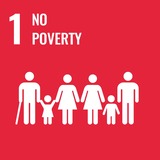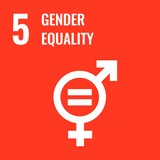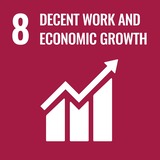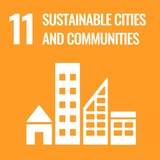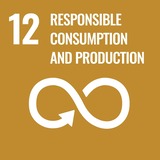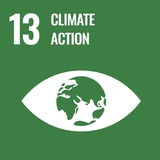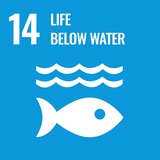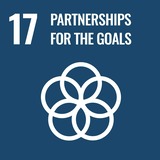COMPED protects our oceans from plastic waste
Phnom Penh, Cambodia
120 tonnes / year
Our story
Growing up in the Cambodian civil war
When COMPED founder Kim Heng Chau was 6 years old in 1970, almost all children in the world started to go to school and have their child life. 1970, Cambodia started the civil war, and young Mr. Chau lost his childhood in a blink of an eye. He had to grow up very fast and move from one place to another with his family. Nine years later, he and his siblings became orphans. At the age of 17, he finally got the chance to go to school: starting in 4th grade.

Improving life for children and the world they live in
The first motivation for founding COMPED was to give children the chance of education and the best childhood they can get, which has become one of the primary missions that the organization is thriving towards with their work today. Plastic waste is one of the biggest threats to the quality of the water and biological diversity in Cambodia. For Mr. Chau, every action for environmental protection is important, as every little helps, so he decided to work in the field of solid waste management. Not only to have the environment he lives in clean but also to take action against climate change as well as to protect the quality of surface and groundwater for future generations.

In 2000 COMPED was founded with the mission to collect unmanaged plastic waste along river and water canals to protect surface water. To date, COMPED is active in plastic waste collection and management in Cambodia’s three biggest cities, Battambang, Phnom Penh, and Kampong Cham, and will continue to expand to more projects in other cities. They are also removing plastic waste from the Mekong River, which is one of the most ocean-polluting rivers worldwide. They work not only on cleanups and waste collection but also on separating the collected waste into local recyclable plastic waste, non-recyclable plastic waste, recyclable non-plastic waste, organic waste and waste to be disposed of. Non-recyclable plastic waste is prepared for co-processing.

Empowering local communities
Today, COMPED's main work pillars are: 1. Co-operation with local authorities in dealing with the waste crisis, saving the environment, and the reduction of greenhouse gas emissions by reducing the amount of organic waste disposed into dump sites by promoting the composting approach throughout the local communities 2. Exchanging experiences with local farmers to improve the quality of agricultural soil and increase the quantity of agricultural products 3. Providing more educational opportunities for poor and disadvantaged children between 3 - 6 years old of the waste pickers and farmers near landfill sites.

The process
"Everybody must do something for our environment, every action for environmental protection is important. I decided to work in the field of solid waste management, not only to live in a clean city but also to tackle climate change and the pollution of surface and groundwater."
COMPED
Mr Kim Heng Chau • DirectorMaximise impact
We work closely with the Ministry of Environment Cambodia and international organizations/institutions in the field of waste management and environmental protection. We have developed guidelines for solid waste management in Cambodia and biomass anaerobic utilization, and continue to raise awareness of municipal solid waste management.
Empower local communities
We strive to empower local communities through our social educational and environmental projects. We do this by providing educational opportunities to the young children (aged between 3 - 6 years old) of the waste pickers and farmers near landfill sites.
Reduce & recover
We are active in plastic waste collection and management in Cambodia’s three biggest cities, Battambang, Phnom Penh and Kampong Cham and will continue to expand to more projects in other cities. We are also removing plastic waste from the Mekong River, which is one of the most polluting rivers worldwide when it comes to dumping plastic into the oceans.
Do no harm
We strive to collect a wide range of materials and ensure that all waste is processed in the most effective way, with the least impact on the environment.
Set high standards
We strive to implement the best practices not only in collecting and managing the materials, and also in ensuring fair employment and support for local communities.
FAQs
CleanHub empowers companies to take immediate responsibility for their plastic footprints. We connect ocean-loving brands with local communities, and facilitate the collection and safe processing of non-recyclable plastic. We understand the importance of proving impact, so we’ve built track & trace technology to provide evidence of how much plastic is collected, and where it ends up after we take care of it.
We choose recovery methods with the lowest environmental impact possible, and use our market position to enforce better working conditions for local workers.
80% of the plastic waste that ends up in the oceans is so-called flexible packaging or multilayer packaging, like chip packets, sauce sachets, etc. This material is either impossible to recycle or there is no demand from the market for the products (unlike water bottles which are commonly collected as they can be recycled, and so have ‘value’). Plastic that can’t be recycled is openly burned in small backyard fires or in landfills, or it is carried away into nature by the monsoon or strong winds. While we do collect all plastics, we focus on non-recyclable plastic to maximize our impact.
In order to stop ocean bound plastic, we need to significantly increase plastic recovery rates in high leakage locations. To achieve that, we empower communities around the world to cope with their own plastic waste, create incentives, develop waste management standards and foster local entrepreneurship. In our network of recovery endpoints we provide critical off-take agreements to safely treat plastic waste.
Plastic pollution is a global problem that affects us all. CleanHub is building a global network of local Collection Hubs in high impact locations to facilitate the collection and safe processing of non-recyclable plastic. We operate primarily in South (East) Asia which is the gateway for more than 80% of all plastic that enters our oceans. With your contribution we can reduce the mismanagement of plastic waste in these regions to eventually stop this environmental crisis.
Recyclable goods are sold for local recycling. Non-recyclables are sent for co-processing.
Co-processing refers to the simultaneous recycling of mineral materials and recovery of energy in the process of cement manufacturing and achieves a superior environmental performance as compared to landfill and incineration. For co-processing recovery we partner with Geocycle.
To learn more, read our blog - What happens to the collected waste
Plastic neutrality means that for every amount of plastic created, an equal amount of plastic waste is retrieved from the environment to be appropriately disposed of - either recycled or repurposed.
We work with brands to calculate their plastic footprint and recover the equivalent amount from the environment in high leakage countries, such as Indonesia or India. Some brands want to go further and recover more plastic than they emit, earning them Plastic Neutral + status. . Every contribution directly prevents plastic from entering our oceans and supports the development of local waste management infrastructure.
To stop plastic from entering the environment, we need to get to a point where the material is collected as close to the consumer as possible, and intercepted before it can reach the ocean. The majority of our plastic efforts are door-to-door collection or other smart ways to aggregate waste in one point. We also finance projects with passive technologies that catch plastic in rivers. The smallest fraction of plastic stems from beach cleanups or is directly sourced from the ocean.
Recovering plastic from the environment involves three distinct operations. Firstly the collection of the plastic, secondly the sorting of plastic into its unique types and thirdly the safe and final treatment. We digitize the recovery of ocean bound plastic from start to finish.Our Hubs use our technology to track the full collection process, which means we can verify every piece of plastic that is collected and what happens to it after we take care of it.
Watch this video to see how it works
We choose the best recovery method according to three steps. Firstly, available recovery options are ranked according to the waste management hierarchy, i.e. Recycling > Energy Recovery > Landfill. Secondly, we rank all options on the basis of life-cycle assessment results that determine related Co2 emissions. Thirdly, all recovery options are ranked by their level of technology and safety. CleanHub only works with recovery companies that operate according to the European code of conduct.
Sign up to our newsletter
Subscribe to receive monthly insights. Plus, we’ll collect 1kg of plastic on your behalf.
Our accreditation
We're the first plastic credit system verified by TÜV SÜD


